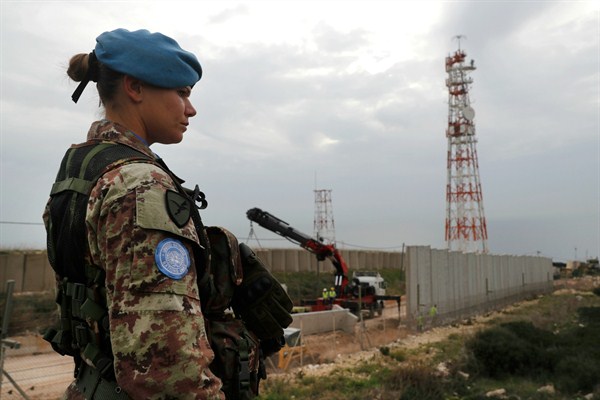Now that the self-proclaimed Islamic State is mostly uprooted in Syria, observers are wondering what the next stage in Syria’s complicated war will bring. The post-ISIS phase conjures a series of possible scenarios, including dangerous escalation and a much larger internationalization of the conflict, as seen in recent weeks with Turkey’s campaign against the Kurds, an American strike on reported Russian mercenaries attacking U.S.-backed forces, and Israel’s skirmish with Iran—all on Syrian soil. But there’s another area where the reverberations from the war in Syria have the potential to explode.
Tensions between Lebanon and Israel are simmering, and all the ingredients are in place for yet another war. For now, neither Israel nor Hezbollah, Lebanon’s Iran-backed Shiite militia, are interested in a renewed open confrontation. But as Hezbollah fighters begin making their way home after a costly but apparently successful effort to help save the regime of Syrian President Bashar al-Assad, there are growing signs that the status quo is about to change.
The tripwire between Israel and Lebanon is the U.N. peacekeeping force known as UNIFIL—the United Nations Interim Force in Lebanon—whose mission is to monitor the cessation of hostilities between two countries that are technically still at war, watching for and calling out violations of U.N. resolutions. But with a number of potentially explosive disputes emerging between Israel and Lebanon, the U.N. force has come under sharp criticism.

